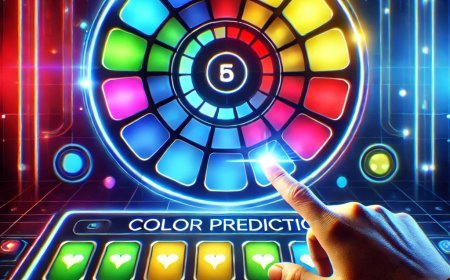What is life like for someone with dissociative identity disorder?

Living with dissociative identity disorder (DID) can be a complex and unique experience, characterized by the presence of distinct identities or personalities within one individual. Often misunderstood, DID can have a profound impact on various aspects of a person's life, including their sense of self, relationships, and daily functioning. If you are suffering from this disorder then you should consult with the top psychiatrist or take admission in the best mental hospital.
In this section, we will delve into the multifaceted nature of DID, exploring the challenges, coping mechanisms, and support systems that can contribute to a fulfilling life for individuals with this disorder.
Let's dive in to get more details.
Understanding Dissociative Identity Disorder (DID)
Dissociative Identity Disorder (DID), formerly known as multiple personality disorder, is a complex and often misunderstood condition characterized by the presence of two or more distinct identities or personality states within one individual. These identities, also known as alters, can have their own unique characteristics, memories, and behaviors.
DID typically emerges as a result of severe trauma experienced during childhood, serving as a coping mechanism to shield the individual from overwhelming emotions and memories. The manifestation of alters can vary widely, with each identity having its own distinct voice, appearance, and mannerisms.
The Manifestation of Alters
Within the context of Dissociative Identity Disorder (DID), alters are distinct identities or personality states that exist within one individual. These alters manifest in various ways, each having its own unique voice, appearance, and mannerisms. They can also differ in their memories, emotions, and behaviors. The manifestation of alters is a core characteristic of DID and highlights the complexity and multi-faceted nature of this disorder.
Impact on Identity and Self-Perception
The presence of alters in individuals with DID can significantly impact their sense of identity and self-perception. As each alter possesses its own distinct characteristics and memories, individuals may experience confusion and a fragmented sense of self. They may struggle to establish a coherent and consistent identity, as the different alters may hold conflicting beliefs or values. This internal battle can lead to challenges in forming a stable self-identity and may contribute to feelings of disconnection or identity disturbance.
Challenges in Daily Life
Living with DID presents unique challenges in daily life. The presence of alters can lead to difficulties in maintaining continuity and consistency in various aspects of life, such as work, relationships, and daily routines. Communication and coordination among alters can be complex and may require strategies to ensure effective functioning and cooperation. Additionally, individuals with DID may experience memory gaps or amnesia, which can be disruptive and impact their ability to recall important information or events.
Understanding the manifestation of alters, the impact on identity and self-perception, and the challenges faced in daily life provide a foundation for comprehending the complexity of living with Dissociative Identity Disorder. Through education, support, and appropriate treatment, individuals with DID can navigate these challenges and work towards a more integrated and fulfilling life.
Relationships with Others
Living with Dissociative Identity Disorder (DID) can significantly impact relationships with others. The presence of alters may require understanding and support from friends, family, and romantic partners. Open communication, patience, and empathy are key in building and maintaining strong relationships.
Coping Mechanisms and Strategies
Individuals with DID often develop coping mechanisms and strategies to navigate daily life challenges. These may include journaling, grounding techniques, creative outlets, meditation, and self-care practices. Exploring and developing effective coping strategies can help manage stress and promote overall well-being.
Therapy and Treatment Options
Therapy plays a crucial role in the treatment of DID. Different therapeutic approaches, such as trauma-focused therapy, dialectical behavior therapy (DBT), and cognitive-behavioral therapy (CBT), can assist individuals in managing symptoms, improving self-awareness, and fostering integration among alters.
Building a Support System
Building a strong support system is vital for individuals with DID. This may include trusted friends, family members, support groups, and mental health professionals who can provide understanding, validation, and guidance throughout the healing process.
Navigating Stigma and Misconceptions
DID is often surrounded by stigma and misconceptions. Educating oneself and others about the disorder can help challenge stereotypes and promote empathy and acceptance. Advocating for accurate information can contribute to reducing stigma and fostering a more inclusive society.
Cultivating Resilience and Empowerment
Living with DID requires resilience and a sense of empowerment. Recognizing strengths, celebrating progress, and embracing self-compassion are essential in the journey towards healing and integration. Through self-empowerment and support, individuals with DID can lead fulfilling lives and thrive despite the challenges they face.
Conclusion
Living with Dissociative Identity Disorder (DID) presents unique challenges, but with the right support, education, and self-empowerment, individuals with DID can lead fulfilling lives and thrive. Building a strong support system that includes trusted friends, family members, support groups, and mental health professionals is crucial for navigating the complexities of DID. By challenging stigma and misconceptions through education and advocacy, we can foster a more understanding and inclusive society.
Cultivating resilience, celebrating progress, and embracing self-compassion are essential in the journey towards healing and integration. With determination and support, those with DID can find strength, resilience, and empowerment as they navigate their path to recovery and well-being.
What's Your Reaction?



























































